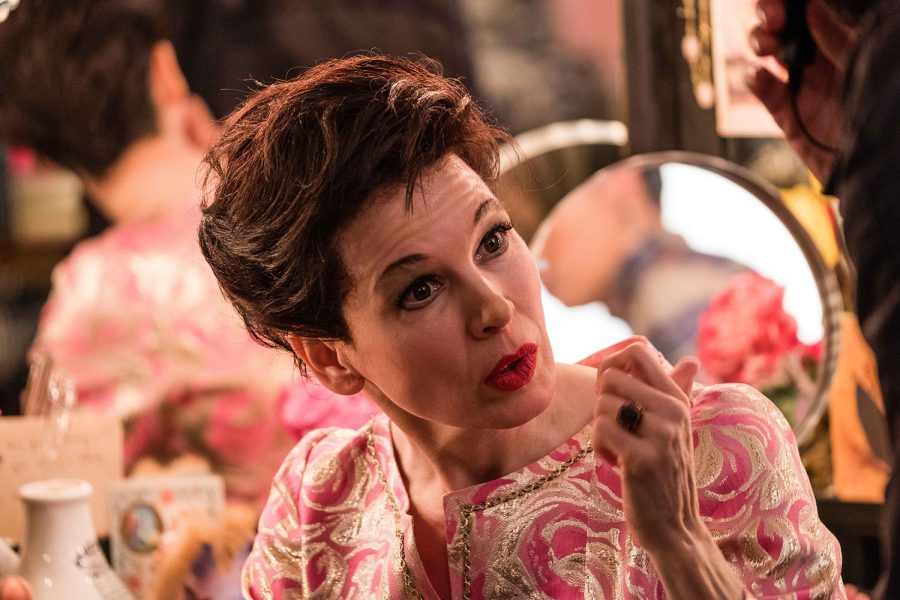Opinion: Judy Garland strays from “Oz” under the abuse of powerful men
Judy paints a haunting reality of the rise and fall of one of Hollywood’s biggest stars.
Renee Zellweger stars as Judy Garland in "Judy."
October 20, 2019
Seeing Judy Garland back on the big screen was nostalgic, but both she and the audience take a sharp detour from the wonder and hope of the yellow brick road.
By focusing on her infamous performances at a London nightclub at the end of her life, Judy gives the audience a front-row seat to the effects of drugs, financial burden, and the life long trauma of powerful men abusing their role in a woman’s story.
The movie begins with Garland’s audition for The Wizard of Oz, a comfortable point of reference for moviegoers. But even in the first few minutes, we learn that the man in charge, Louis B. Mayer, is more of a foe than friend for the budding film starlet. With only a few glimpses into the past throughout the movie’s duration, it’s understood that Garland’s drug addiction began nonconsensually under the direction of MGM.
Garland wasn’t an estranged woman who refused to bow out gracefully, but a hero who tried until the very end to regain her footing in the very world that broke her.
Each time we return to Dorothy, the shine of the ruby red slippers wears off until the horse of a different color is nothing but a dark and unsettling memory. From being forced to take pills instead of eating a hamburger and rehearsing for 18 hours straight, to Mayer inviting Garland to swim at his house as he grazes her chest, we aren’t merely left with pity for the 47-year-old icon — we’re angry.
It seems as though the world gave up on Garland, with little respect for the work she had done, her exceptional talent as a singer, or for the ease of her witty and slightly self-deprecating humor. According to society’s standards, she was washed up. But it’s Judy who brings the light back to Oz, warts and all.
Garland was a drug addict. She was unreliable and hard to work with. But did anyone ever think to ask why?
This film works to dive beyond the surface of a sexist industry that cast out one of its biggest successes. Garland wasn’t an estranged woman who refused to bow out gracefully, but a hero who tried until the very end to regain her footing in the very world that broke her. She was her own champion, but was stifled by the early psychological effects of needing a man’s approval in order to achieve her dreams.
Demonstrated through her fifth marriage to Mickey Deans, Garland surrounded herself with egotistical, fame-deprived, and less-than-loving men to fill a void. Her entire worldview was skewed and toxically tainted, forever unable to click her heels and return to a life before volatile and powerful men.
Yet perhaps the most heart-wrenching scene is when Garland gives her final performance of the film, six months before her death. Crumpled on the floor of the stage, unable to sing the next verse through her tears, she sits in defeat because she will never get over the rainbow.
Garland was special long before a man told her so or the gift of a dead witch’s shoes. Even after the five-tiered audience helps her sing of lemon drops, she left with a mound of debt, empty pill bottles, and a tragic life that could have been truly magical.














